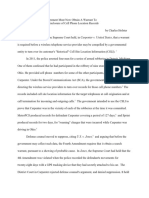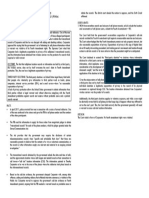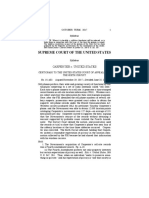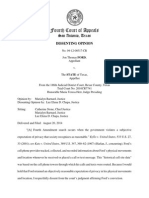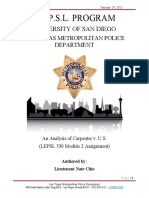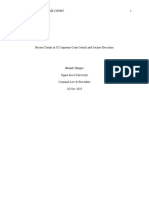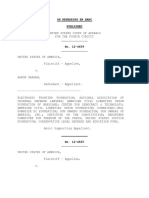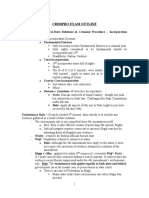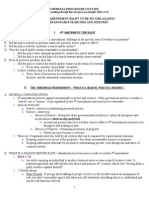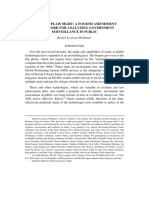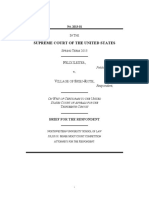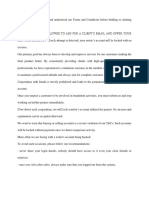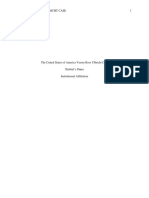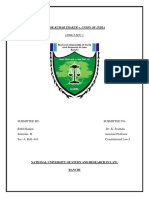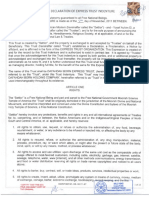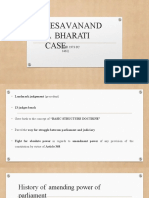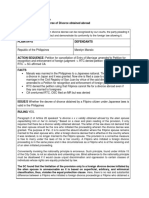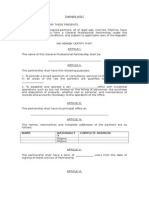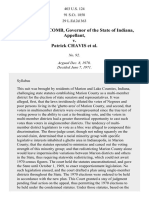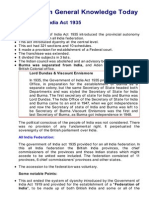0% found this document useful (0 votes)
58 views4 pagesAssignment 4
This document summarizes the Supreme Court decision in Carpenter v. United States 2018. The Court reversed a lower court ruling and affirmed that law enforcement needs a warrant to access cell site location information (CSLI) from wireless carriers. The Court found that individuals have a reasonable expectation of privacy in long-term CSLI records based on the comprehensive nature of location data collection and implications for revealing personal details. While not as precise as GPS, the Court ruled that CSLI still reveals private information about an individual's movements and associations over time. The decision limited the third party doctrine established in prior cases but did not eliminate it or address other government data collection techniques.
Uploaded by
LaDonna WhiteCopyright
© © All Rights Reserved
We take content rights seriously. If you suspect this is your content, claim it here.
Available Formats
Download as DOCX, PDF, TXT or read online on Scribd
0% found this document useful (0 votes)
58 views4 pagesAssignment 4
This document summarizes the Supreme Court decision in Carpenter v. United States 2018. The Court reversed a lower court ruling and affirmed that law enforcement needs a warrant to access cell site location information (CSLI) from wireless carriers. The Court found that individuals have a reasonable expectation of privacy in long-term CSLI records based on the comprehensive nature of location data collection and implications for revealing personal details. While not as precise as GPS, the Court ruled that CSLI still reveals private information about an individual's movements and associations over time. The decision limited the third party doctrine established in prior cases but did not eliminate it or address other government data collection techniques.
Uploaded by
LaDonna WhiteCopyright
© © All Rights Reserved
We take content rights seriously. If you suspect this is your content, claim it here.
Available Formats
Download as DOCX, PDF, TXT or read online on Scribd
/ 4
